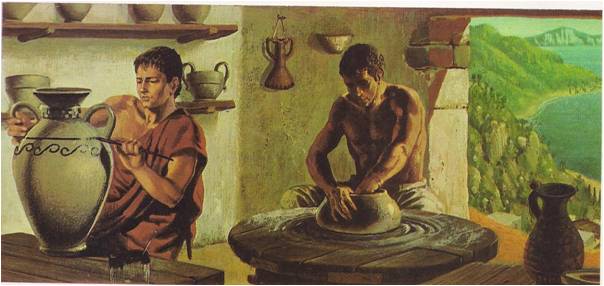THE FIRST SIGN of the approaching Roman army was a thin column of dust. It rose like smoke from behind the jagged Thracian hills of Northern Greece, which sheltered the Visigoths’ encampment. Moments later, the Visigoths, or German barbarians, as the Romans called them, could feel the ground tremble with the tread of the imperial legions. The Romans were advancing, forty thousand strong, under the personal command of the Emperor Valens. Within the Visigoths’ barricade of wagons, all was confusion. Chieftains bellowed, calling their clans together. Sturdy Visigothic warriors dragged the wagons closer together in a protective circle. Horses neighed …
Read More »Tag Archives: Dark Ages
Kings, Tyrants and Democracy 1000 B. C. to 100 B. C.
During the Dark Ages, the large kingdoms of Homer’s Achaean heroes had disappeared. The Greek world was now dotted with dozens of little countries. They had begun with fortresses set on hills and crags. Soon each fortress was surrounded by a village, as farmers abandoned their huts in the fields and built new homes close to the walls. In times of danger, they could take refuge behind the walls. A market place was built and a few metalsmiths and potters opened shops. When temples were set up inside the fortress, the castle hill became an acropolis, a “high town,” the …
Read More »Gods and Heroes 800 B.C. – 550 B.C.
From island to island and town to town, across the wide new world of the Greeks, the minstrel wandered, with a harp slung across his back and a batch of stories in his hand. When he knocked at the gate of a palace or great house and offered to sing for his supper, he was never refused. There were no shows to see and no books to read. The people relied on the minstrels to entertain them and to tell their stories of the past, which otherwise might be forgotten. The minstrel’s stock of stories was a mixture of tall …
Read More »

